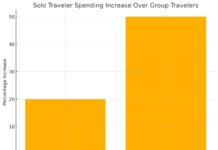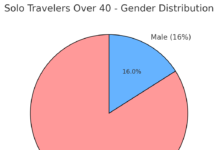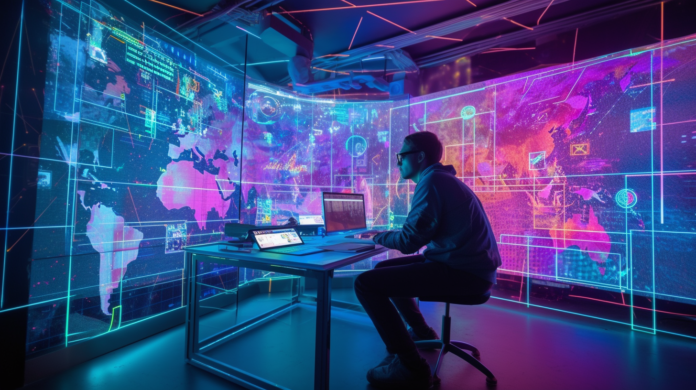
We’ve been exploring AI over the last year and are excited by the day to day opportunities it can bring, particularity in the travel industry.
Travel is one of the most dynamic and competitive industries in the world. It is also one of the most affected by the COVID-19 pandemic, which has disrupted travel demand, supply, and operations. However, travel is also one of the most resilient and innovative industries, which is constantly looking for new ways to adapt and thrive in the changing environment. One of the key drivers of this innovation is artificial intelligence (AI), which is a branch of computer science that enables machines to perform tasks that normally require human intelligence, such as understanding natural language, analyzing data, and making predictions.
AI has the potential to transform the travel industry in various ways, from improving customer experience and satisfaction, to optimizing business processes and revenue, to enhancing safety and sustainability. In this article, we will explore some of the benefits and opportunities that AI can offer to travel companies, using real-life examples and cases.
AI for Customer Experience and Satisfaction
One of the main goals of travel companies is to provide a seamless and personalized customer experience throughout the entire travel journey, from inspiration to booking to arrival to departure. AI can help achieve this goal by using various methods, such as:
- Chatbots and virtual assistants: These are AI-powered tools that can interact with customers via text or voice, providing information, assistance, and recommendations. For example, ChatGPT Kayak is a plugin that works with ChatGPT, an AI-powered language model by OpenAI that can generate natural and coherent texts based on your input. ChatGPT Kayak allows you to ask questions and get answers about flights, hotels, cars, and attractions in natural language. You can also specify your preferences, such as budget, airlines, stopovers, etc., and ChatGPT Kayak will provide personalized recommendations1.
- Personalized recommendations: These are AI-powered tools that can analyze customer data, such as search history, preferences, behavior, feedback, etc., and provide tailored suggestions for travel products and services. For example, Hopper is an app that uses AI to predict future flight prices with over 90% accuracy2. It also sends you notifications when prices drop or are about to increase, so you can book at the right time. Hopper claims that it can save you up to 40% on your flights by using its price prediction feature2.
- Sentiment analysis: This is an AI-powered tool that can analyze customer reviews and social media posts and extract insights about customer satisfaction, emotions, opinions, etc. For example, Instalocate is an app that helps you track your flights and get compensation for any delays or cancellations. Instalocate uses AI to analyze flight data and provide real-time updates on your flight status, gate changes, baggage claim, etc. It also uses AI to calculate your eligibility for compensation according to the applicable laws and regulations3. Instalocate claims that it can help you get up to $700 in compensation for any flight disruptions3.
AI for Business Processes and Revenue
Another main goal of travel companies is to optimize their business processes and revenue by reducing costs, increasing efficiency, and maximizing profits. AI can help achieve this goal by using various methods, such as:
- Data analytics: This is an AI-powered tool that can collect, process, and analyze large amounts of data from various sources, such as customer behavior, market trends, competitor actions, etc., and provide valuable insights for decision making. For example, Skyscanner is a travel metasearch engine that uses AI to aggregate data from hundreds of travel providers and compare prices for flights, hotels, cars, etc. Skyscanner also uses AI to provide insights on the best time to book, the best destinations to visit, the best deals to grab, etc.
- Revenue management: This is an AI-powered tool that can optimize pricing strategies based on demand forecasting, inventory management, competition analysis etc., and maximize revenue per available seat or room. For example, Expedia is a travel booking platform that uses AI to dynamically adjust prices based on various factors such as seasonality customer loyalty market conditions etc. Expedia also uses AI to offer discounts coupons and rewards to incentivize customers to book more.
- Automation: This is an AI-powered tool that can automate repetitive or tedious tasks that normally require human intervention such as booking confirmation invoice generation customer service etc. and improve productivity quality and accuracy. For example Booking.com is a travel booking platform that uses AI to automate various aspects of its operations such as sending confirmation emails processing payments answering customer queries etc. Booking.com also uses AI to automate its content creation process by generating descriptions for its properties based on their features.
AI for Safety and Sustainability
A third main goal of travel companies is to enhance their safety and sustainability by minimizing risks, ensuring compliance, and reducing environmental impact. AI can help achieve this goal by using various methods, such as:
- Risk management: This is an AI-powered tool that can monitor and detect potential threats or hazards that may affect travel operations, such as weather conditions, natural disasters, security issues, health emergencies, etc., and provide alerts, warnings, or solutions. For example, Google Maps is a navigation app that uses AI to provide real-time traffic information, road closures, accidents, etc., and suggest alternative routes or modes of transportation.
- Compliance management: This is an AI-powered tool that can ensure that travel operations comply with the relevant laws and regulations, such as visa requirements, travel restrictions, health protocols, etc., and provide guidance, verification, or documentation. For example, Sherpa is an app that uses AI to provide travelers with the most up-to-date travel requirements for any destination in the world. Sherpa also allows travelers to apply for visas, travel authorizations, or health declarations online.
- Environmental management: This is an AI-powered tool that can measure and reduce the environmental impact of travel operations, such as carbon emissions, waste generation, water consumption, etc., and provide recommendations, incentives, or certifications. For example, Tripadvisor is a travel review platform that uses AI to calculate the carbon footprint of each trip based on the mode of transportation, distance traveled, accommodation type, etc. Tripadvisor also provides travelers with tips on how to reduce their carbon footprint and offset their emissions.
Thoughts
AI is a powerful and versatile technology that can help travel companies achieve their goals and overcome their challenges. AI can improve customer experience and satisfaction by providing personalized and convenient services. AI can optimize business processes and revenue by providing data-driven and dynamic solutions. AI can enhance safety and sustainability by providing risk-aware and eco-friendly practices. As the travel industry recovers from the pandemic and prepares for the future, AI will be a key enabler of innovation and transformation.
























